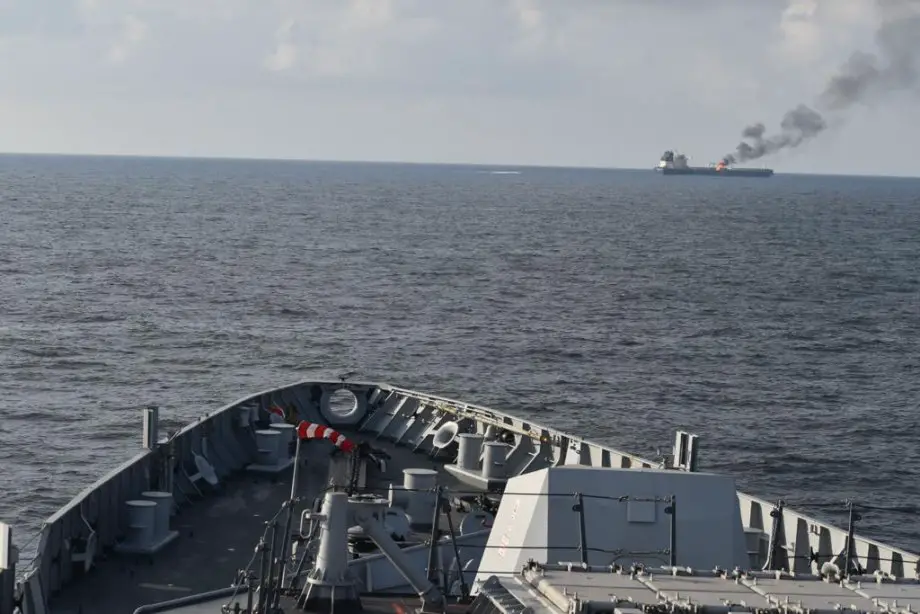According to information published by the Indian MoD on January 27, 2024, the Indian Navy's destroyer, INS Visakhapatnam, provided critical assistance to a civilian vessel, MV Marlin Luanda, in the Gulf of Aden.
Follow Navy Recognition on Google News at this link
 Visakhapatnam-class destroyer INS Visakhapatnam. (Picture source: Indian Navy)
Visakhapatnam-class destroyer INS Visakhapatnam. (Picture source: Indian Navy)
The operation commenced on January 26, 2024, following a distress call due to a fire onboard the MV. The Indian Navy deployed a firefighting team, successfully controlling the fire after a six-hour effort.
Context
The Houthis have been actively targeting ships, with several incidents reported where drones and missiles have been used against commercial vessels. In response to these threats, the Indian Navy has bolstered its maritime security efforts.
These efforts include the deployment of frontline destroyers and frigates and enhanced aerial surveillance using long-range maritime patrol aircraft and remotely piloted aircraft. The primary objective is to ensure the safety of merchant vessels transiting through these international shipping lanes.
On December 23, the Indian Navy assisted MV Chem Pluto, a Liberian-flagged, Japanese-owned chemical tanker that suffered a drone attack, causing a fire onboard. The Navy escorted this vessel, which had 21 Indians and a Vietnamese sailor, to Mumbai for repairs.
Additionally, the Indian Navy has been proactive in responding to piracy threats. For instance, on January 5, the Navy intercepted a Liberian-flagged bulk carrier, MV Lila Norfolk, and compelled the pirates to flee, thereby freeing 21 crew members onboard.
Indian Navy
INS Kolkata was deployed at the mouth of the Red Sea, INS Kochi south of Yemen's Socotra Island, INS Mormugao in the west Arabian Sea, and INS Chennai in the central Arabian Sea. India is thus the only non-Western country to intervene concretely to enforce the free circulation of civilian ships in this part of the world.



